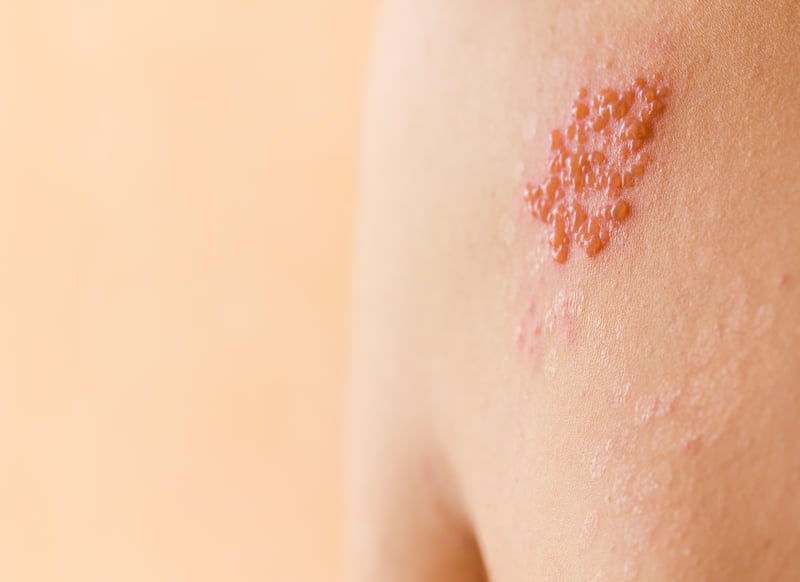Get Healthy!

- Robert Preidt
- Posted June 9, 2022
Shingles Won't Raise Risk for Dementia: Study
If you've survived a painful bout of shingles, at least you won't have to worry that it might raise your future risk of dementia, new research indicates.
Shingles, caused by the reactivation of the chickenpox virus, results in a blistering rash from nerve inflammation, and there has been speculation that the inflammation may boost the chances of a dementia diagnosis down the road, so a team of scientists decided to investigate.
They analyzed data from more than 247,000 people in Denmark who visited a hospital or were prescribed antiviral medication for shingles over the course of 20 years, and 1.2 million age- and sex-matched people without the illness. The average age of people in the study was 64.
Of those who had shingles, 9.7% developed dementia up to 21 years later. The rate was 10.3% among those with no history of shingles, the investigators found.
After adjusting for other health conditions - such as diabetes, cancer and traumatic head injury - people with shingles actually had a 7% lower risk of dementia than people who did not have shingles, according to the study published online June 8 in the journal Neurology.
"We were surprised by these results," said study author Dr. Sigrun Alba Johannesdottir Schmidt, from Aarhus University Hospital in Denmark.
"The reasons for this decreased risk are unclear, but it could be explained by missed diagnoses of shingles in people with undiagnosed dementia," Schmidt said in a journal news release. "Shingles vaccination is encouraged for older people because it can prevent complications from the disease, but our study suggests it is unlikely to reduce dementia risk."
The study did find that people who had shingles that had spread to the central nervous system had nearly twice the risk of developing dementia, but such complications affect fewer than 0.1% of people with shingles, Schmidt noted.
"As a person's age increases, so does their risk of dementia, and it's important to determine which factors may contribute to this risk," Schmidt said. "Shingles most often affects people over age 50. The good news is that our study found it does not seem to increase a person's risk for dementia."
More information
There's more on shingles at the U.S. National Institute of Neurological Disorders and Stroke.
SOURCE: Neurology, news release, June 8, 2022
